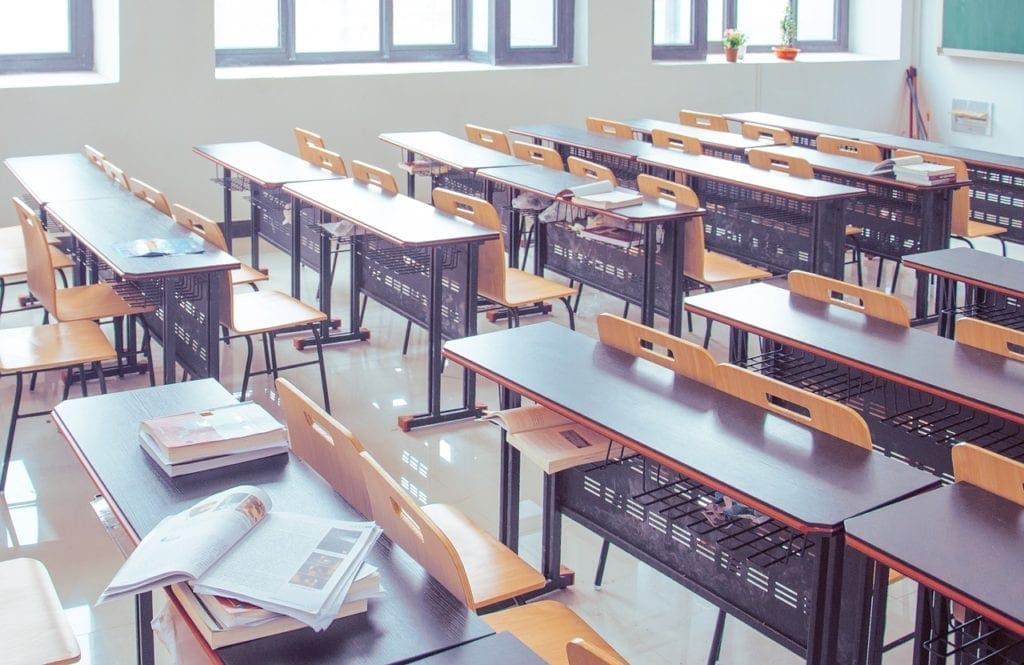Investment in education, many political activists argue, is key to improving society. But it is through public and compulsory education that these political hacks trap Americans of all backgrounds by teaching that only government has the answers to their questions, and it is thanks to this system that children’s curiosity, creativity, and thirst for real learning are all crushed.
Still, public schooling is great, many will say. So much so that it must endure and remain unchanged and unchallenged, whether or not competitors do a better job at actually educating young Americans. But what happens when this perfect system of government-backed education fails so miserably that students can’t even meet the state’s own grading standards?
The answer is simple: pass a bill lowering the scale used to grade the actual schools.

In North Carolina, lawmakers are considering a bill that would change public schools’ F grade from a 59 percent to a 39 percent, effectively lowering the scale used to grade public schools’ performance. However, lawmakers state, the bill would not change how schools grade students individually, just public schools.
After all, it’s easier to just lower the standard schools must meet than admit defeat and make it easier for students to achieve basic grading goals.
But while this particular attempt at making public schools look better on paper seems unique to NC, the reality is that states have struggled to sell the idea that public education in America is worth the high cost for decades. And thanks to that struggle, schools have done whatever they could to lower standards for awarding A grades to its students.
The result is a messy one. As high school GPAs continue to rise while standardized test scores fall.
And while researchers claim that private schools are the ones doing most of the grade inflation, U.S. private school students have continuously topped public school students in average SAT scores.
Private Schools: Not a Luxury
There’s also another area private institutions beat public ones and that is overall efficiency, meaning that students achieve more per dollar spent on average. In other words, the tax-backed dollar used on public education is not going as far as the private dollar spent on a private institution.
Unfortunately, proponents of more government spending will always claim that those behind private enterprise are greedy, and that if it wasn’t for public education, the poor would be left out. But as explained by Andrew Kern for the Mises Institute, it is in the poorest of countries, where governments are inefficient and fail to keep track of private institutions, where private schools for the poor thrive. After all, they are low-cost and don’t always follow the rules.
In places like Nigeria, researchers found 32 private schools for the poor in the shantytown of Makoko, where 70 percent of schoolchildren attend private and not public schools. Despite this fact, the government had no knowledge of these institutions.
Locals are grateful, as they see the difference between the two systems.
James Tooley, the author of The Beautiful Tree, said a Nigerian man told him that “[w]e pass the public schools many days and see the children outside all of the time, doing nothing. But in the private schools, we see them every day working hard.”
In Lagos State, Tooley also found that 75 percent of children of school age attended private schools. Once again, the local government had record of very few of them. And in India, Tooley explained that “[e]verywhere among the little stores and workshops were little private schools! I could see handwritten signs pointing to them even here on the edge of the slums.”
Even in rural Gansu, China, where government says there are only 26 schools (all public), Tooley found there were 586 private schools in operation. And unlike the government schools, which were all located in larger towns, these private institutions were all located in small villages.
As you can see, proponents of public schooling aren’t really worried about helping the poor. If they were, they would be the first ones to advocate for more freedom in education. Unfortunately, that’s not the case.

























